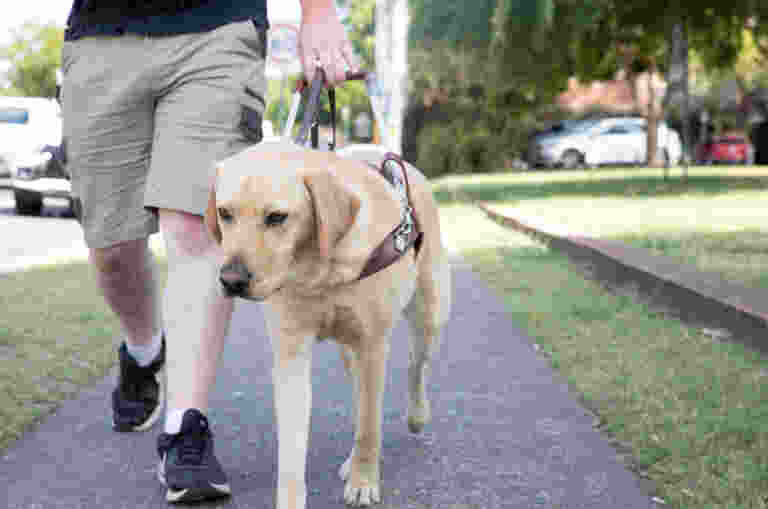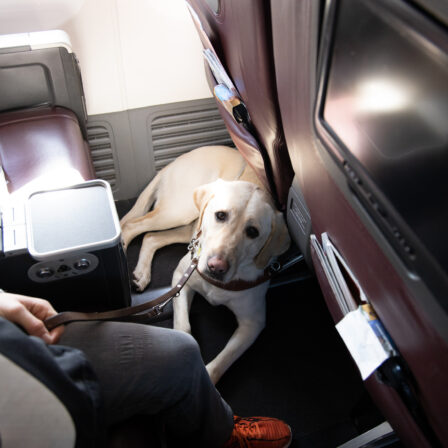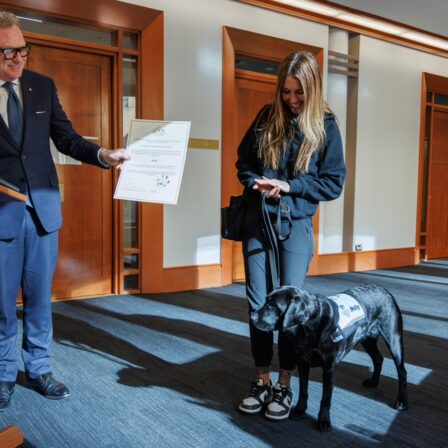News
Systemic Issues Require Systemic Solutions

An international survey released on 2 June 2025 highlights the significant access challenges confronted by assistance dog handlers is a global issue. The Paws For Access Report on Assistance Dog Rights, published jointly by Assistance Dogs International (ADI) and the International Guide Dog Federation (IGDF), contains responses from more than 1,200 assistance dog handlers in 24 countries across the world. The report found that four out of every ten assistance dog handlers — and 48% of guide dog handlers — say they sometimes stay at home or avoid public places because of the hostility they encounter when out and about.
This report builds on the research conducted by Guide Dogs Australia in 2023 (with EY Sweeney, 2023) which found that four out of five respondents who are blind or have low vision experienced challenges in public places and public transport.
Both pieces of research find that issues for assistance dog handlers are not isolated, they run deeply across all societies, and require significant public policy reform with strong education campaigns.
The Head of Government Relations Jeremy Anderson said Guide Dogs has long advocated for urgent action, highlighting the disconnect between legislation and real-world experiences for handlers.
“We know assistance dogs provide greater confidence, mobility and independence in the community, but even strong disability rights laws will not work when they are inconsistently applied and without proper enforcement and public education.
“That’s why we welcome the Australian government’s current work with state and territories to create nationally consistent regulatory principles for assistance animals. But we know they could go much further with standardised regulations, stronger enforcement, better identification and accreditation and most important public education”, Mr Anderson said.
National Policy Advocacy and Manager Lee Kumutat, an international advocate having worked in senior roles across the United Kingdom and United States strongly supported the solutions as called for urgent action.
“I have experienced refusals in every setting outlined in this global report. Assistance dog handlers have had the burden of proving their rights of access with their highly trained dogs for too long.”
“It is exclusive, exhausting and disheartening. It is time for legislation to be strengthened, and laws enacted to ensure direct accountability. Governments and lawmakers must share the responsibility and cost of enforcement and public education about the rights of access disabled people have when using an assistant dog.”
The IGDF and ADI report proposes a five-point plan:
- Public education
- Stronger, standardised regulations
- Improved identification of assistance dogs
- Training for small business owners
- Legal reform to ensure consistent enforcement
You can read more about these findings and Guide Dogs Australia’s research supporting this five-point plan here:










